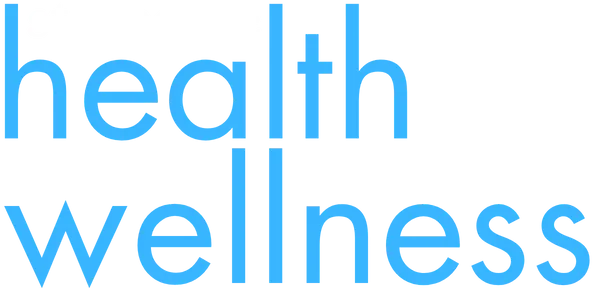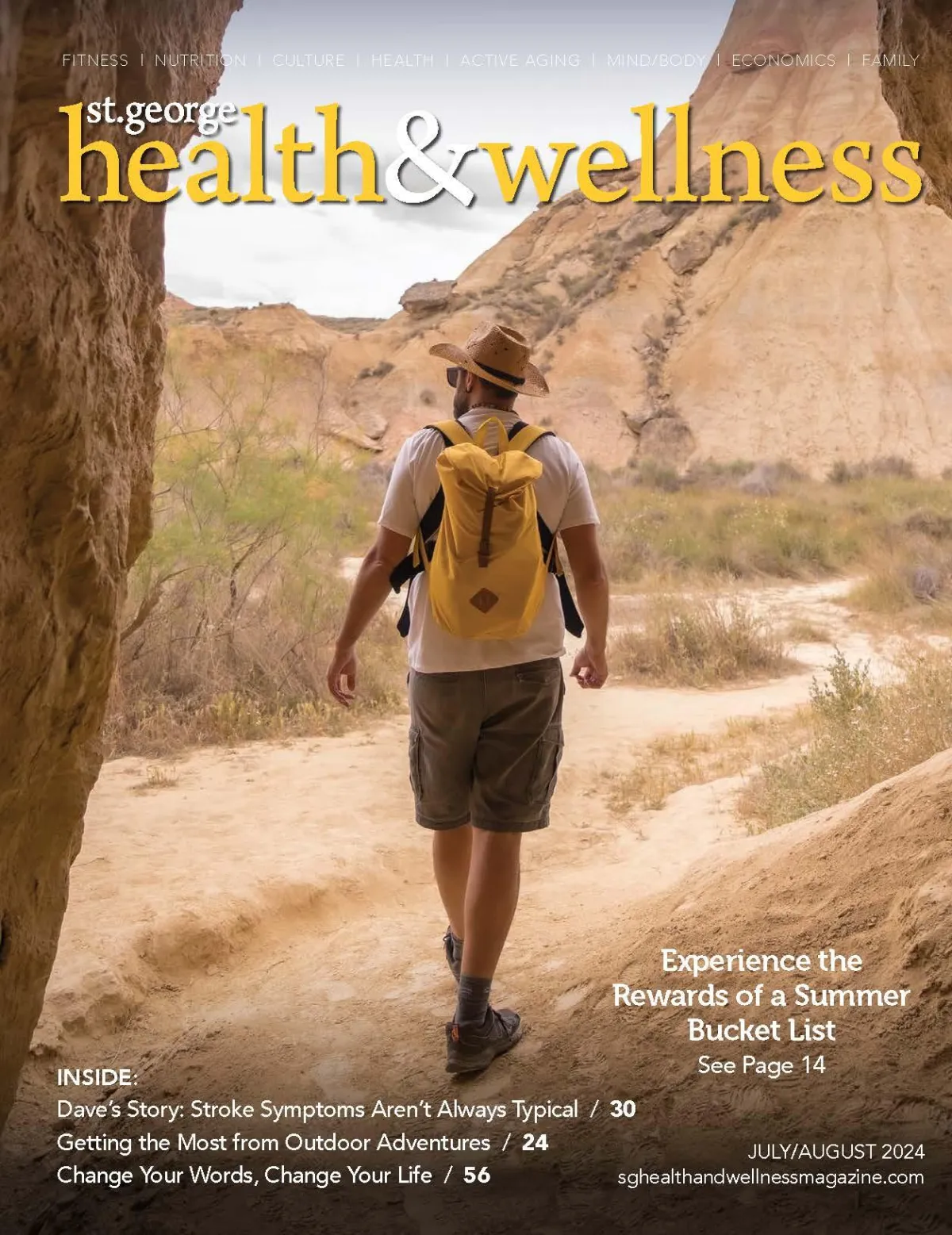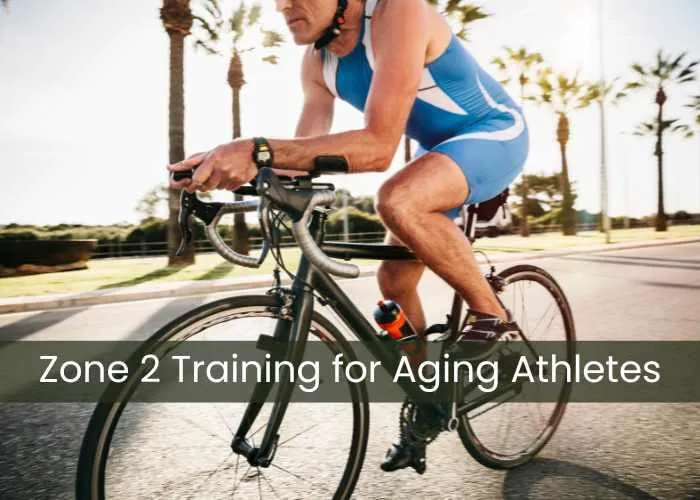

JULY & AUGUST 2024 ISSUE

Cover Story
Experience the Rewards of a Summer Bucket List
Community & Culture
Letter from the Editor
Mayor’s Message
Trailblazer Nation
Start on Your Path to a Stable Career
Navigating Real Estate in the Age of the Internet
The Health Benefits of Resort Living: Why Resort Residences Are the Ultimate Wellness Retreat
Utah Tech University Debuting the State’s Most Affordable Online Master of Healthcare Administration Program
Creative Wigs and Hair Replacement Now Celebrating Sixty Years of Service
It Takes Little to Be a Big
Carsen Cooper: Lessons I Learned at Boy’s Nation
Health & Fitness
Flex-Time: Trish Schlegel Is Ageless Bodybuilder
Walk Your Way to a Longer, Healthier Life
Getting the Most from Outdoor Adventures
Menopause and Obesity: a Real Phenomenon
Riding on the Wind
Dave’s Story: Stroke Symptoms Aren’t Always Typical
The American Apple
Ease the Ache: Arthritis Care and Advice from Vista Healthcare
Alternative Holistic Care for Horses
Preventive Dental Care Will Help You Live Your Best Life
Utah’s Swell: Utah Is Great, but It Is Also Home to the San Rafael Swell
Four Considerations for Effective Tax Planning in Retirement
A Look at Self-Guided In-Home Health Tests
Empower Yourself with Nutrition Know-How
Four Tips for Summer Water Safety

Mind & Body
Experience the Rewards of a Summer Bucket List
The Mental Health Benefits of Exercise for Older Adults
The Profound Relationship between Our Physical and Emotional Health
Nurtured by Nature: Interacting with Nature Benefits the Body and Mind
Change Your Words, Change Your Life
Set Your Sights Higher with a Vision Board
What Type of Ketamine Is Right for You?
Relationships & Family
Have You Lost That Loving Feeling?
Encounter on Santa Clara Boulevard
Who Am I? A Map to Self-Discovery
Make a Positive Impact by Planting a Tree

Current Articles

The Current War on Seed Oils
Oil is an essential component to everyday life–for cars, electricity, skin care, and cooking. Although this slippery substance has its controversies, we can’t live without its various forms. Wars for fossil fuels have been fought on a global stage, and the latest dietary battleground is now taking place in the farmer’s field: seed oils are in the crosshairs of many health and wellness influencers.
Seed oils, such as soybean oil, corn oil, sunflower oil, and canola oil, are widely used in cooking, found in processed foods, and used for industrial applications. Critics argue that these oils may have harmful health effects while others highlight their nutritional benefits and practical uses. Here is a breakdown of the main points of contention:
Omega-6 Fatty Acids and Inflammation
Criticism: Seed oils are high in omega-6 fatty acids, which can contribute to an imbalance in the omega-6 to omega-3 ratio in modern diets. Some researchers suggest this imbalance promotes chronic inflammation, potentially increasing the risk of heart disease, cancer, and other inflammatory conditions.
Counterpoint: Omega-6 fatty acids are essential, and their role in inflammation is complex. Many studies indicate that consuming omega-6 fats as part of a balanced diet is not inherently harmful and may even reduce cardiovascular risk.
Processing and Refinement
Criticism: Seed oils are often heavily refined in processes that use high heat, chemical solvents (e.g., hexane), and deodorization. Critics argue that these processes may degrade beneficial nutrients and create harmful byproducts, like trans fats or oxidized lipids.
Counterpoint: Many refined seed oils meet safety standards, and modern refining processes aim to minimize harmful byproducts. Cold-pressed or minimally processed alternatives are available for those concerned about refinement.
Health Studies and Dietary Patterns
Criticism: Some skeptics blame seed oils for the rise in obesity, diabetes, and other chronic diseases, arguing that their widespread use in processed foods correlates with worsening public health.
Counterpoint: Correlation does not equal causation. Many health experts argue that these diseases are multifactorial and point to excessive calorie intake, low physical activity, and sugar consumption as more direct culprits.
In my humble country physician’s opinion, seed oils are not inherently bad or good. Their low cost and availability, however, create an overabundance of highly processed, high-calorie foods like fries, chips, and other snacks. I know life can be busy, but the more time you spend cooking your own food, the healthier you will be. Over time, you’ll likely gravitate toward less processed oils that have a higher flash point, such as avocado and coconut oils.



